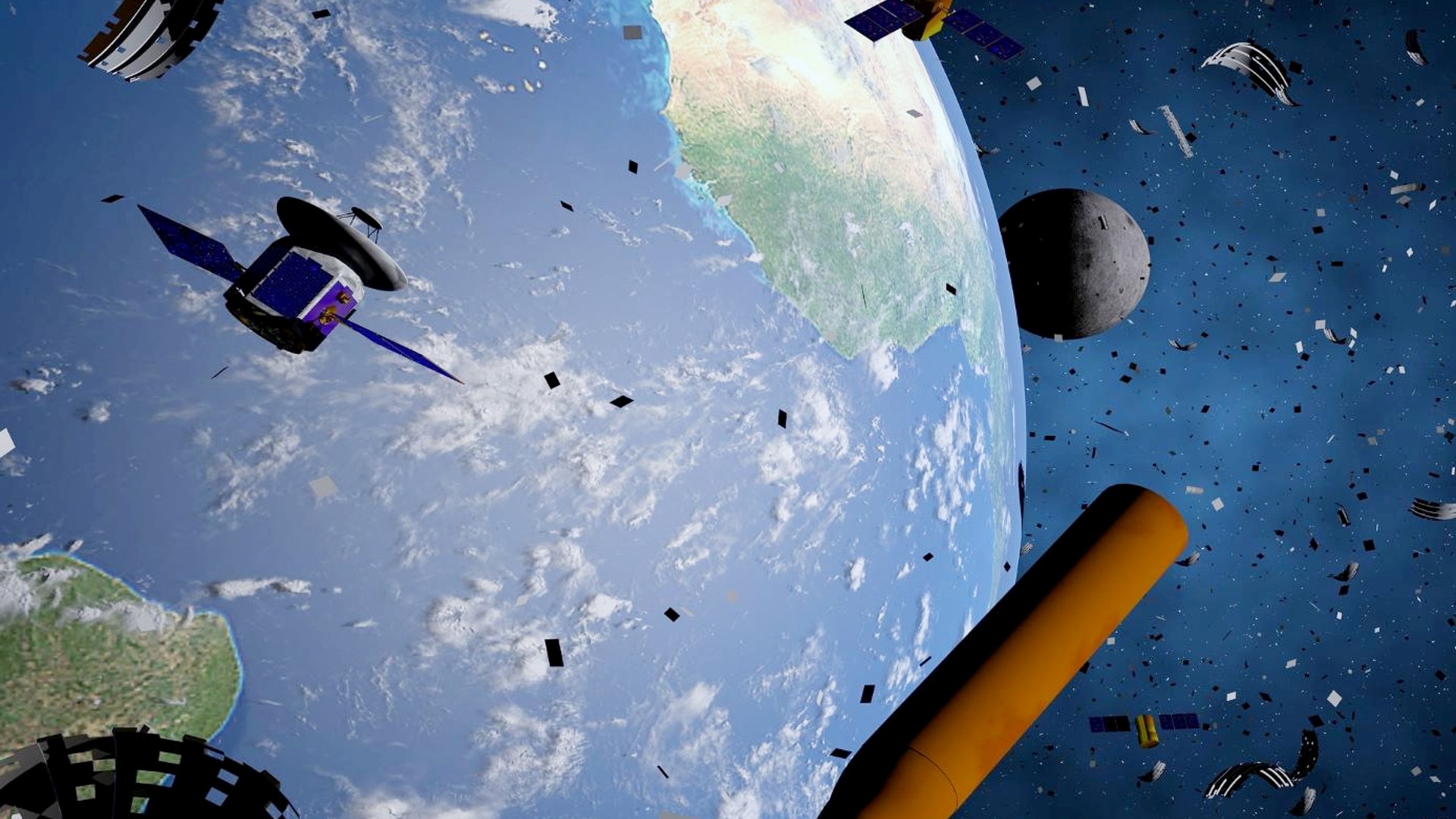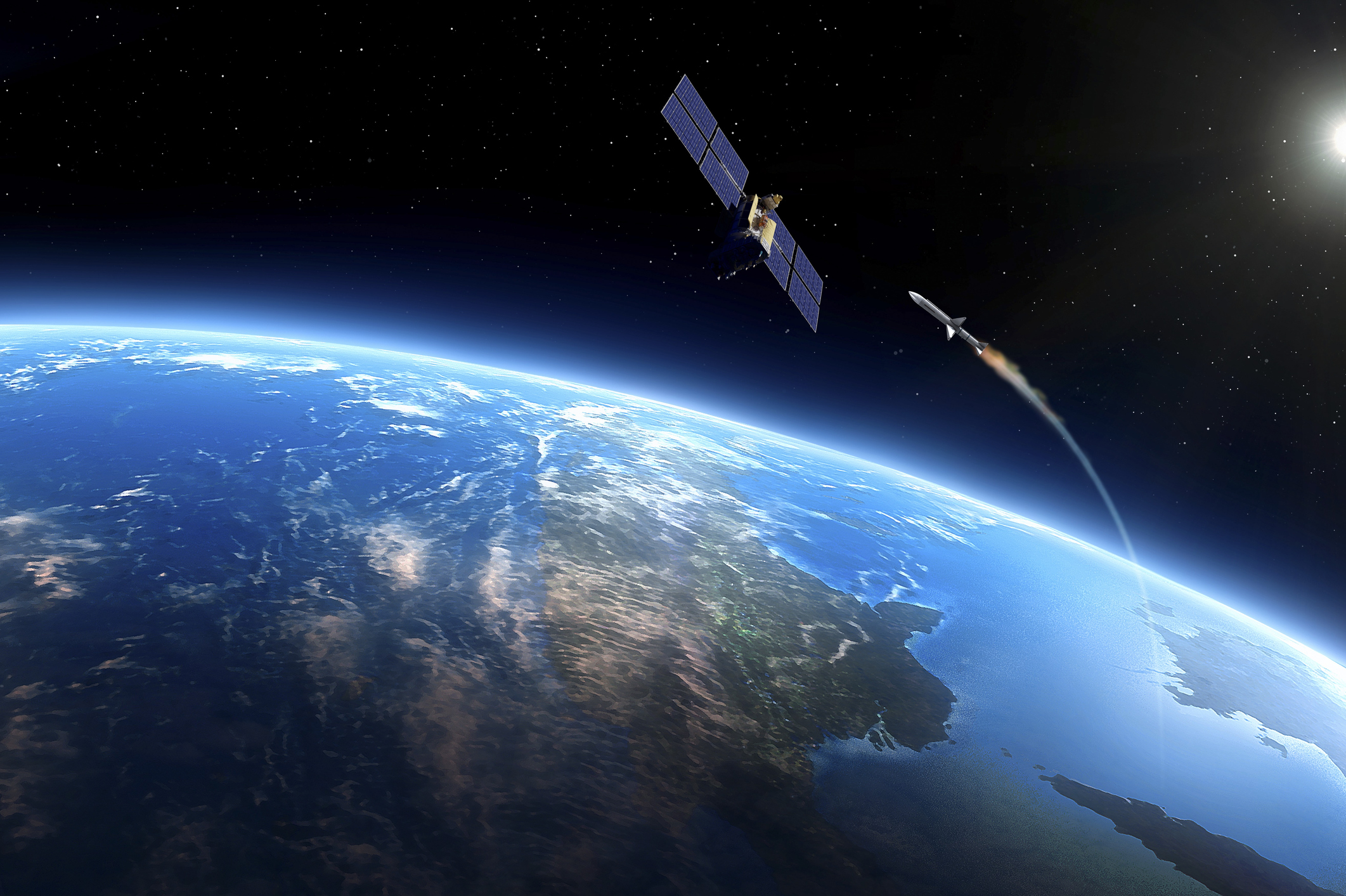Space junk worries prompt new action by NASA, Congress
The U.S. government has been talking a lot about remedies for space debris in 2022.

NASA and the U.S. Congress have joined the chorus urging action to reduce the threat of space debris.
Big satellite constellations that are being assembled by companies such as SpaceX, along with a Russian anti-satellite (ASAT) test in November 2021 that threatened International Space Station operations numerous times, are likely fueling these discussions, due to worries about space debris affecting access to, and utilization of, Earth orbit.
As more and more satellites go up, the risk of collisions — which can spawn big debris clouds, as the Russian ASAT test did — increases as well. Even a few such smashups could severely affect a range of satellite-provided services such as telecommunications, navigation and weather forecasting, experts have stressed.
Related: Space debris from Russian anti-satellite missile test spotted in telescope images and video
In Congress, a bipartisan bill introduced on Sept. 13 seeks to address the space junk problem. The Orbital Sustainability (ORBITS) Act is led by U.S. Sen. Maria Cantwell (D-Wash.), chair of the Senate Committee on Commerce, Science and Transportation.
"This bill will jumpstart the technology development needed to remove the most dangerous junk before it knocks out a satellite, crashes into a NASA mission, or falls to the ground and hurts someone," Cantwell said in a statement about the legislation, which is in the early stages of discussion. If approved, the bill would focus on development and demonstration of technologies for debris removal and seek to create a market for these services.
Meanwhile, NASA announced on Sept. 13 that it has funded three projects focused on dealing with orbital debris. The projects are also early-stage but seek to quantify the economic and social problems associated with the rise of space junk.
Get the Space.com Newsletter
Breaking space news, the latest updates on rocket launches, skywatching events and more!
"Maintaining our ability to use space is critical to our economy, our national security, and our nation's science and technology enterprise," Bhavya Lal, associate administrator for NASA's Office of Technology, Policy, and Strategy, said in a statement. "These awards will fund research to help us understand the dynamics of the orbital environment and show how we can develop policies to limit debris creation and mitigate the impact of existing debris."
The three projects are:
- "Adaptive Space Governance and Decision-Support using Source-Sink Evolutionary Environmental Models," submitted by Richard Linares and Danielle Wood of the Massachusetts Institute of Technology and Moriba Jah of the University of Texas-Austin;
- "An Integrated Assessment Model for Satellite Constellations and Orbital Debris," submitted by Akhil Rao of Middlebury College, Daniel Kaffine of the University of Colorado-Boulder, and Brian Weeden of the Secure World Foundation;
- "Communication and Space Debris: Connecting with Public Knowledges and Identities," submitted by Patrice Kohl, Sergio Alvarez, and Philip Metzger of the University of Central Florida.

The new efforts by Congress and NASA follow on an August announcement from the U.S. Federal Communications Commission (FCC), which pledged a new rules framework concerning orbital debris focusing on in-space servicing assembly and manufacturing (ISAM) risks and opportunities. The last major FCC update on space junk prior to this occurred just two years ago.
And in September, Vice President Kamala Harris said the United States would urge other nations to abandon destructive anti-satellite tests, in part due to concerns about space debris. She raised the issue while chairing a meeting of the National Space Council in mid-September, following on from an April Biden administration pledge not to conduct destructive anti-satellite missile tests in space.
Follow Elizabeth Howell on Twitter @howellspace. Follow us on Twitter @Spacedotcom or Facebook.
Join our Space Forums to keep talking space on the latest missions, night sky and more! And if you have a news tip, correction or comment, let us know at: community@space.com.

Elizabeth Howell (she/her), Ph.D., was a staff writer in the spaceflight channel between 2022 and 2024 specializing in Canadian space news. She was contributing writer for Space.com for 10 years from 2012 to 2024. Elizabeth's reporting includes multiple exclusives with the White House, leading world coverage about a lost-and-found space tomato on the International Space Station, witnessing five human spaceflight launches on two continents, flying parabolic, working inside a spacesuit, and participating in a simulated Mars mission. Her latest book, "Why Am I Taller?" (ECW Press, 2022) is co-written with astronaut Dave Williams.









